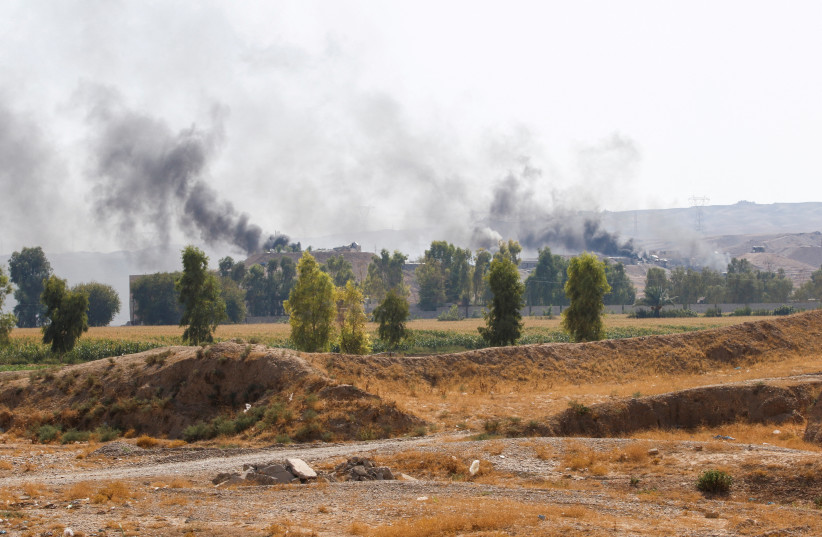Iran’s regime is apparently considering more pressure on Iraq to prevent dissidents from entrenching themselves there.
A report in the Kurdish Rudaw media said that “the Iranian Intelligence Ministry renewed their threats against Iraq and the Kurdistan Region on Sunday, warning that unless the border areas are secured and Kurdish opposition groups in the region are disarmed, they will continue their military attacks on the region.”
This is important because Iran carried out numerous rocket and drone attacks in Iraq last year during the Iranian protests. Iran often accuses the autonomous Kurdistan region of not only harboring thousands of Iranian dissidents and Iranian opposition group, but also of being linked to Israel. In September 2022 Iran’s pro-regime media claimed it targeted “Mossad” in Erbil. It has continued this kind of rhetoric over the years. In December 2022 Iran also claimed to have targeted “Mossad teams” and thwarted a “Mossad network.”
“With the cooperation of the new Iraqi government and the guarantees given, we hope to witness security in the western borders and the non-repetition [of attacks], and to remind the responsibility of the Iraqi [Kurdistan] Region,” the semi-official ISNA news agency cited Intelligence Minister Esmail Khatib as saying, according to Rudaw. Iran has been targeting the Komala opposition party. The report as Rudaw claimed that Iran has in the past targeted “Mossad-related agents.”
The Rudaw report goes on to note “Iran had also accused Kurdish dissident groups on behalf of a foreign intelligence agency of smuggling the parts of three drones into the country from the Kurdistan Region that were used to carry out a drone strike on the Isfahan military facility in late January.”

Why is Iran cracking down on dissident groups?
Iran’s continued focus on dissident groups is part of its crackdown internally in which it has executed hundreds of people. Last year protests swept Iran but now Iran is seeking to crush any dissent which remains. This also means Tehran focuses on going after minority groups, such as Kurds. Attacks on Kurds and Baloch and other minorities, such as Azeris, are a way for Iran to lash out without causing repercussions for the regime in Tehran or the center of the country. In this sense, Iran feels it can threaten Iraq, because no one will prevent Tehran’s cross-border raids on dissident Kurdish groups.
Meanwhile, the two largest Kurdish parties in northern Iraq have held a meeting to try to compromise on divisions between themselves. “A senior PUK delegation visited their KDP counterparts in Pirmam, Erbil province, to discuss numerous issues, including the upcoming Kurdistan Region parliamentary election set for November 18, 2023,” Kurdistan 24 noted. “
The party leaders discussed holding the regional elections ‘on time,’ according to the statement, adding other topics require further discussions in upcoming meetings.
Iran often exploits divisions in Iraq in order to achieve its goals. For instance, Iran has traditionally been closer to the Kurdish PUK party which is strongest in Sulimaniyeh near Iran. However, dissident groups such as Komala and PDKI are also present in this area, meaning Iran must try hard not to destabilize the Kurdish area, while also pressuring PUK to expel the dissident groups. At the same time, Turkey has put pressure on the PUK as well, accusing them of working with Kurdish groups in Syria which Ankara accuses of being “terrorists.”
